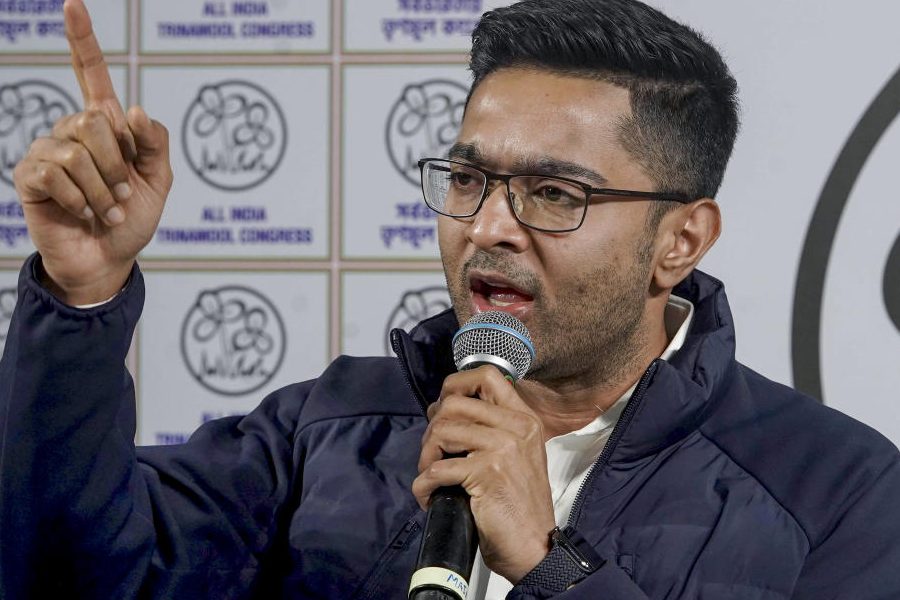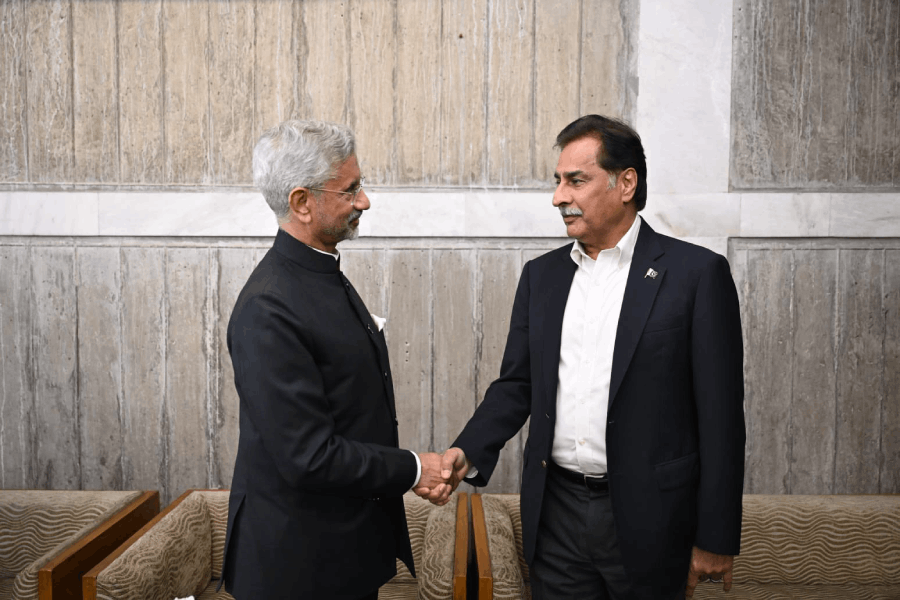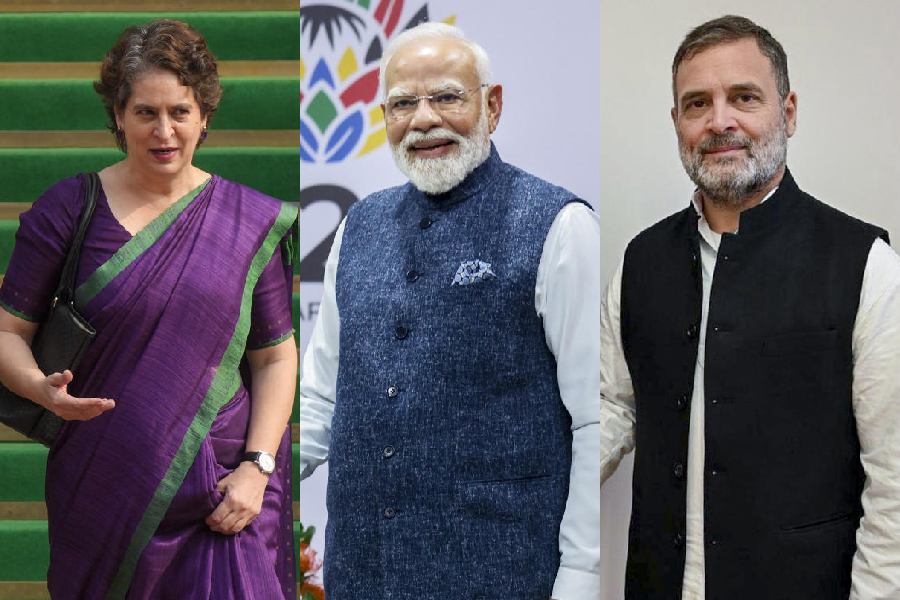Crime & punishment
Sir— Bail should be the norm and jail the exception according to the Supreme Court. Yet, 73% of crimes in India’s statute books carry prison terms ranging from a day to 20 years. Moreover, a shocking 301 offences, including a sentry falling asleep on duty, can attract the death penalty. What’s more, there are some bizarre acts that can lead to criminal charges being filed — handing a feeding bottle to a mother who cannot breastfeed, for instance. A report by the Vidhi Centre for Legal Policy flags India’s habit of reaching for criminal law to solve mundane issues like ‘flying a kite in a manner that causes alarm’. Is it any wonder then that over 34 million cases are pending in Indian courts and that prisons are operating at 131% capacity?
Diptiman Saha,
Lucknow
Abnormal state
Sir — The terrorist attack in Pahalgam in Jammu and Kashmir is condemnable (“Mayhem in meadow”, April 23). It was orchestrated by the militant outfit, The Resistance Front, which is believed to be affiliated to the Lashkar-e-Toiba. The tall claims and chest-thumping by the Bharatiya Janata Party about ‘normalcy’ having been restored in Kashmir have been belied most violently. The BJP’s callousness and mishandling of Kashmir are, in part, responsible for the situation in the Valley. The leader of the Opposition, Rahul Gandhi, has rightly lambasted the Union government for not being able to prevent this cowardly attack.
The targeting of Hindu tourists and some of the alleged statements made by the terrorists during the attack clearly reveal that the poison of communalism that the BJP has spread has many insidious outcomes for both Hindus and Muslims. The terrorists need to be punished severely. The Union government has to take responsibility instead of going into overdrive to save face.
M.C. Vijay Shankar,
Chennai
Sir — It is clear that nothing in Kashmir has returned to ‘normal’ (“Blood, again”, April 23). The timing of the attack also makes one suspect that it was in retaliation to the passing of the Waqf (Amendment) Act, 2025. The government must ensure that the terrorists are caught and punished and the LeT is not allowed to poison more minds in India. No words of condemnation are enough for this heinous attack. One hopes for speedy justice.
Kirti Wadhawan,
Kanpur
Sir — The photographs and the videos of the terror attack in Kashmir are gruesome. The attack in Pahalgam is undoubtedly a failure of the Indian intelligence agencies. The Central government, which spares no opportunity to give the impression that normalcy has been restored in the Valley, has some tough questions to answer.
It must be noted that the youth in Jammu and Kashmir are being misguided in the name of religion. The policies of the Narendra Modi-led BJP government at the Centre are also adding fodder to their rage. Lack of opportunities, political disempowerment and aggressive Hindutva are some of the causes for Jammu and Kashmir’s frustration.
Jayanta Datta,
Hooghly
Sir — The ghastly attack in Pahalgam has shown that the enemies of the State have not been overpowered; they were merely dormant. They have timed the attack not only during the India visit of the vice-president of the United States of America but also months before the Amarnath Yatra is slated to begin. This will have an impact on tourism and, in turn, on the economy of the Union territory.
One cannot help but speculate whether the recent statement by the Pakistan army chief, General Asim Munir, that Kashmir is the “jugular vein” of Pakistan inspired this attack. The desperation of Pakistan is quite evident. The world should unite to counter terrorism.
D.V.G. Sankara Rao,
Andhra Pradesh
Sir — Tourism is the primary source of livelihood in Jammu and Kashmir. The terror strike in Pahalgam will thus affect the lives of Kashmiris. The government’s repeated claims of normalcy in Kashmir have been disproved. The attack was a security failure, more so since the militants were dressed in army uniforms. Although the militants targeted the people of a particular faith, no religion teaches terrorism.
Shameek Bose,
Calcutta
Shared history
Sir — The Supreme Court’s criticism of prejudice against a language in the name of religion and its description
of Urdu as the finest example of “Ganga-Jamuni tehzeeb” are commendable. As the court pointed out, a language has no religion. It is primarily a means of communication. In this era of globalisation, it has become increasingly important to preserve all languages as they together enhance the diversity of our nation.
Abdullah Jameel Azmi,
Mumbai
Sir — The Supreme Court has observed that the prejudice against Urdu stems from the misconception that Urdu is alien to India. Responding to a former councillor’s petition challenging the use of Urdu on a municipal signboard in Maharashtra, the court emphasised that Urdu originated in India and upheld the use of this language.
Muhammad Bhoranaiya,
Mumbai
Sir — A former councillor from Maharashtra’s Akola district went to the Supreme Court to petition against the use of Urdu on a municipality signboard. The petitioner conveniently overlooked the fact that Urdu was one of the 14 languages included in the Eighth Schedule when the Constitution was adopted 75 years ago. It has not only been the language chosen by many renowned poets over the centuries but is also a part of everyday conversations today, particularly in courts and revenue offices. Countless parliamentary debates have been embellished by Urdu shayari. The apex court rightly pointed out that the word, ‘Hindi’, itself came from the Persian word, ‘Hindavi’.
Khokan Das,
Calcutta











